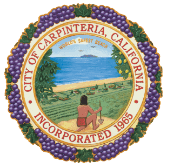[ad_1]
City staff will ask the Carpinteria City Council today to consider establishing badly needed active adult/senior programming services as well as a gathering site for older residents to meet and congregate with their peers.
The council will meet at City Hall, 5775 Carpinteria Ave., starting at 5:30 p.m.
“Carpinteria’s median age is nearly 18% higher than the state average, and residents 60 and over make up 27.4% of Carpinteria’s population compared to 19.7% for the state and 20.4% for the county,” staff said in its report to the council.
“Despite the large proportion of active adults and seniors within the community, Carpinteria does not offer a cohesive active adult/senior programming menu, nor does it have a dedicated center for such programs to occur.”
“Carpinteria is the only city in Santa Barbara County, other than the City of Guadalupe, that does not offer such programming, either through the city, an outside agency or some combination of the two.”
Following a community needs assessment survey, staff is urging the council to first focus efforts on securing an interim location for an active adult/senior center. The center will serve as a “hub” for immediate programming and as a platform for future long-term programming discussions.
“Long-term options such as an all-age community center have been discussed and generally well-received, however, stakeholders and long-time advocates for an active adult/senior center are concerned that focus on long-term options will detract from efforts to initiate more immediate, interim options,” staff said.
“Based on initial research of existing city-owned facilities and potential partnerships with mobile home parks, churches and local businesses, staff feels confident that an interim active adult/senior center location can be quickly identified and, if authorized, secured for programming.”
A preliminary site survey of potential interim active adult/senior center locations indicates that, based on responses to programming preferences and accessibility barriers, programming options are increased, and accessibility barriers are decreased, at non-city owned facilities, staff said.
Locations such as the Veterans Memorial Building and Carpinteria Community Library should serve solely as supplemental programming space, not the central program “hub,” staff said.
Staff said the council would have to determine a budget for programming and potential facility use agreement(s.)
“While volunteers often play a significant role in the success of active adult/senior programs, funding for at least one staff person is needed,” staff said. “Based on stakeholder feedback and collected data, dedicated staffing is now deemed necessary for interim options as well.”
Staff recommends the creation of a full-time program coordinator position under the Parks, Recreation and Public Facilities Department. “This position will lead tasks such as programming, volunteer coordination, scheduling, grant administration, contracts and agreements, program promotions, and facility management.”
The position may be limited to active adult/senior services programming or may be expanded to include coordination of potential future youth services under the city’s current civic/youth engagement work program. “Additional part-time staff may be required in the future as programming expands.”
In other business, staff is recommending the council consider amending the city’s Short Term Rental Administrative Policies and Procedures, which clarify and implement the city’s short term rental regulations applicable to home stays.
The updated policies and procedures state expressly that a home must be an owner’s primary residence in order for it to be eligible for a home stay license, and adds a procedure for homestay hosts to provide proof of their compliance with the primary residence requirement both at the initial application stage and upon subsequent renewals of their license.
Staffers noted that they recently received complaints that certain home stay licensees may be hosting multiple homestay bookings at one time, possibly as a means to bypass maximum occupancy and vehicle limitations.
In response, staff said the updated policies and procedures would clarify that homestay licensees would only allow one home stay booking at a time, and that each such booking would be limited to a maximum of four guests and one vehicle.
“This limitation is consistent with the purpose of home stays being a low intensity type of STR in residential zones,” staff said. “If a home stay licensee was instead allowed to host several homestay bookings simultaneously and each concurrent home stay booking was allowed up to four guests and one vehicle, the overall number of guests and cars may exceed the intent of the home stay regulations.”
The updated policies and procedures also include minor revisions for clarity, internal consistency and consistency with current city practices, such as revisions to the appropriate place to submit STR applications.
The City Council adopted comprehensive short term rental (STR) regulations and administrative policies and procedures in 2017.
City staff thereafter worked with owners to help them operate STRs within the constraints of the regulations and administrative policies and procedures. There are currently four homestays throughout the city and 183 vacation rentals in the Vacation Rental Overlay District, with a maximum of 218 total. Forty more licenses are available.
On Sept. 13, 2021, the council received a presentation providing a status report on the city’s STR program. During this meeting, both council members and members of the public voiced concerns related to several STR-related issues, including home stays.
Specifically, several comments were received from neighbors of a home stay property that were concerned that the home owners did not reside at the home at all times and questioned whether the owner was present during all rentals.
Staff noted that the council wished to address rentals of individual rooms, or similar arrangements, on a short-term basis where the owners are in residence under the STR Program regulations.
The council also wanted to ensure that homestay license owners would feel responsible to surrounding neighbors and address any issues of parking, noise and trash control by occupants before they impacted the neighborhood.
email: nhartstein@newspress.com
[ad_2]
Source link
